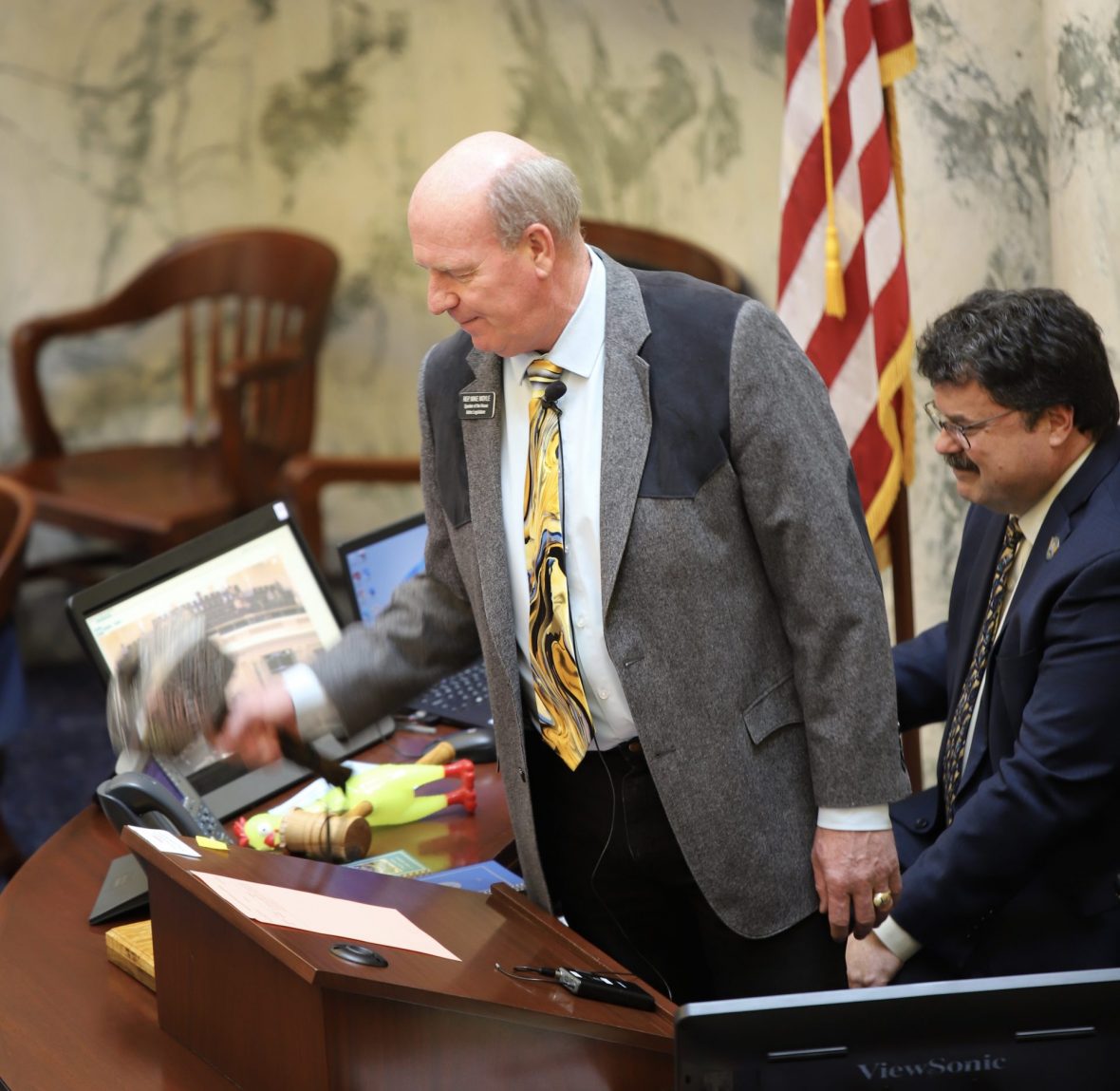
The Mike Moyle legislative session ended Wednesday.
Yes, it was officially the 2024 legislative session. Or, if you want to be formal, the second regular session of the 67th Idaho Legislature.
But for all practical purposes, this was Moyle’s session. The speaker of the House got pretty much everything he wanted over the past 94 days: an overhaul of a decades-old budget-writing process; an omnibus school facilities and tax law; a budget that puts the kibosh on a $52 million sale of the Idaho Transportation Department’s State Street campus.
At a postsession news conference Wednesday afternoon, Moyle engaged in a little bit of coachspeak, pointing out that nothing passes the Legislature without 36 yes votes in the House and 18 yes votes in the Senate. “I think where I was, was where the majority of the Legislature was, especially the House side,” said Moyle, R-Star. “You can’t do it by yourself in this building.”
But Moyle didn’t skip a beat when he was asked about unfinished business.
“I still think that the school choice issue is not going away,” he said. “I assure you that something will happen next year.”
The single most powerful legislator in the Statehouse, Moyle showed this session that he’s willing to pull any arrow from the quiver:
- He can close ranks. When House moderates and Democrats pushed back against the new, two-tiered budgeting process — starting with “maintenance” bills to covering basic agency spending — the issue came to a head on the House floor. GOP leadership almost unanimously supported the first maintenance budget, which narrowly passed. One holdout, then-Majority Leader Megan Blanksma, R-Hammett, was voted out of leadership the next day, although Moyle has insisted that was not his doing, but a caucus decision.
- He’ll push colleagues to get them to vote yes. Moyle’s House Bill 521 was a convoluted something-for-everyone mashup — a historic state investment in school buildings; an income tax cut, a perennial Moyle favorite; and more. Senators grumbled about an overloaded Christmas tree of a bill that, at best, pushes the constitutional prohibition requiring bills to focus on a single topic. “A lot of them complained and then voted yes,” Moyle said Wednesday. “I get it, that’s how the process works.”
- He’s willing to wait out the Senate and the governor. In the ITD showdown, Moyle outlasted Senate President Pro Tem Chuck Winder, a vocal backer of the State Street sale. On the second try, the Senate voted to block the purchase. Then, on Wednesday, Moyle got a grudging shrug from Gov. Brad Little. The governor allowed the ITD-related budgets to become law without his signature — even though he voiced concerns with action that “unfairly cancels an agreed-upon sales process.”
- He’s willing to look for safe harbor for a bill he likes. In 2023, the House Education Committee slammed the door on a series of school choice bills. Moyle didn’t give the committee another chance this year. He routed a $50 million private school tax credit bill to the House Revenue and Taxation Committee. Rev and Tax also said no, but Moyle’s message wasn’t lost on House Education Committee chair Julie Yamamoto, who said she would have preferred to see the bill in her committee. “You really got a bird’s eye view of the strategy that goes into whatever happens here,” Yamamoto, R-Caldwell, said Wednesday. “That’s been educational for me.”
But perhaps the most important tool at a speaker’s disposal is the power of patience. On Wednesday, after a three-year process that ended with a veto in 2023, an unenthusiastic Little signed a bill restricting access to “harmful” library materials. Moyle likened the closure on the libraries battle to the ongoing school choice debate.
“Each attempt gets you closer to getting it done,” he said.
After fighting a series of library bills, Democrats worry that history could repeat itself.
“It’s like, ‘Oh, you’re getting this whether you like this or not,’” said House Minority Leader Ilana Rubel, D-Boise. “That is the message that we have gotten, very much, on vouchers.”
“This is going to keep bubbling up,” said House Minority Caucus Chair Ned Burns, D-Bellevue, who voted against the tax credit bill in committee last month.
Democrats are hoping the issue gives them some leverage at the polls in November. And the Democrats made some real gains in candidate recruiting this year: They found candidates for 81 of Idaho’s 105 legislative seats. That includes Caldwell Democrat Nancy Parker, who has filed for Moyle’s seat.
First, Moyle must survive a repeat primary challenge. Nampa Republican Rachel Hazelip, who garnered 44% of the vote in 2022, is running against Moyle again.
With 26 years’ experience in the Statehouse, including 18 years in House leadership, Moyle carries a considerable edge in name ID. Moyle can also tap into fundraising streams unavailable to newbies: as of the end of March, he has more than $108,000 in his campaign.
None of this ensures Moyle will be re-elected. But the odds are clearly on the side of the senior member of the Legislature.
Should Moyle be back, the 2024 session provides a good idea of what to expect in 2025.
Kevin Richert writes a weekly analysis on education policy and education politics. Look for his stories each Thursday.
